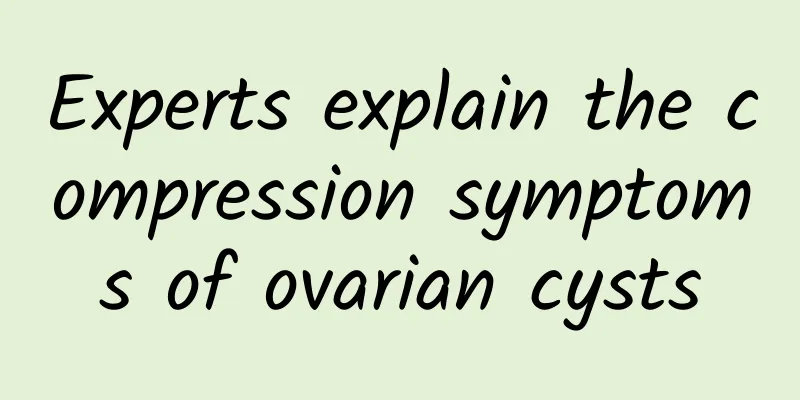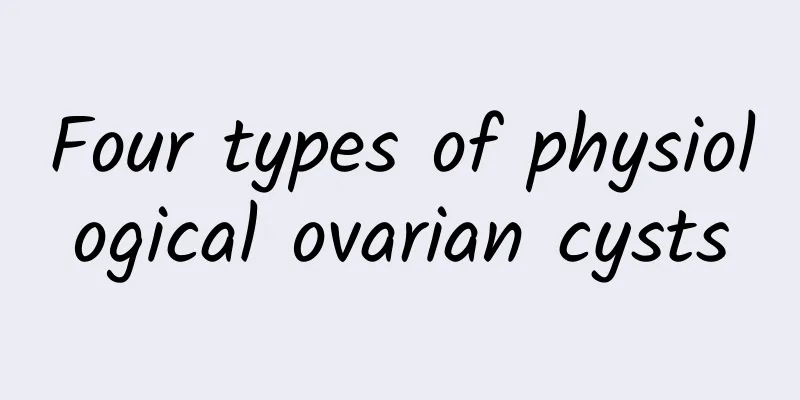Experts explain the compression symptoms of ovarian cysts

|
Compression symptoms are a more serious symptom of ovarian cysts, and they appear when the disease develops to the late stage. What are the common symptoms of this type of ovarian cyst ? Let the experts tell you about the specific manifestations of this type of ovarian cyst. A huge ovarian tumor can cause dyspnea and palpitations due to compression of the diaphragm. Ovarian tumors combined with a large amount of ascites can also cause symptoms of this type of ovarian cyst. A huge benign ovarian cyst fills the entire abdominal cavity, increasing the intra-abdominal pressure and affecting the venous return of the lower limbs, which can lead to symptoms of ovarian cysts with edema of the abdominal wall and bilateral lower limbs. A malignant ovarian cyst fixed in the pelvic cavity compresses the iliac vein and often causes edema of one lower limb. The pelvic and abdominal organs are compressed, resulting in dysuria, urinary retention, urgency or difficulty in defecation. The symptoms of this type of ovarian cyst are mainly manifested in the following aspects: (1) Ascites: The presence of ascites is often a characteristic of malignant tumors, but benign cysts such as ovarian fibroma and papillary cystadenoma can also produce ascites. Symptoms of ovarian cysts such as hirsutism, hoarseness of voice, and clitoromegaly are masculinization cysts. (2) Cachexia: This symptom of ovarian cysts is characterized by extremely distended abdomen, emaciation, painful facial expression and severe exhaustion. (3) Intra-abdominal mass: If the intra-abdominal mass is medium or smaller and has no complications or malignant transformation, its biggest feature is mobility. It can often move from the pelvic cavity to the abdominal cavity. The mass is generally not tender. However, if there are complications or malignant transformation, not only will the mass itself be tender, but there may even be symptoms of peritoneal irritation. These are all common symptoms of ovarian cysts. The above is an introduction to the common symptoms of ovarian cysts. I hope it will be helpful to everyone. Once the symptoms of ovarian cysts appear, you must go to the hospital for treatment in time to avoid delaying the disease. |
<<: Three common causes of ovarian cysts
>>: Experts briefly analyze the main precautions after cervical erosion surgery
Recommend
Multiple artificial abortions are the main cause of cervical erosion
Cervical erosion is a relatively common gynecolog...
"Fish" your love has an appointment! Bringing Warmth to Orphanages in Cold Winter
Ignite the spark of life and hope! Behind their s...
Detailed analysis of some of the hazards of vaginitis
Vaginitis is the most common gynecological diseas...
Postoperative precautions for moderate cervical erosion
For the treatment of cervical erosion, patients m...
Recommended Medicinal Diet for Patients with Irregular Menstruation
Irregular menstruation is one of the most common ...
Can bilateral polycystic ovaries be cured?
Bilateral polycystic ovary is a common endocrine ...
Eat only vegetables for dinner to lose weight? Nutritionists teach you how to lose weight
In order to lose weight successfully, you must ha...
Cervical precancer diagnosis tool
What is the basis for early diagnosis of cervical...
Sudden bleeding 14 days after abortion
Sudden bleeding 14 days after abortion Artificial...
Is there a high chance of curing dysmenorrhea?
Is the probability of dysmenorrhea being cured hi...
3 common causes of amenorrhea
Amenorrhea refers to the phenomenon that women ov...
What kind of exercise can help you recover after abortion?
What kind of exercise can help with recovery afte...
Straighten your back and confidence will follow! Experts teach you how to stand correctly without hunching over, and easily have the graceful posture of a ballerina
Straighten your back In ballet classes, they ofte...
Clinical manifestations and diagnosis of congenital absence of vagina
Experts told us that many patients with congenita...
Run a marathon without fatigue and lose body fat ~ This one training trick will win
The Hualien Taroko Marathon, the "most beaut...









